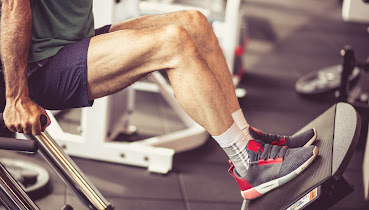Men don’t get varicose veins, right? Of course they do! Men are just as likely to suffer from vein issues than women.
Every June is Men's Health Month. This year, June 14-20 is Men’s Health Week, a chance for men to take stock of their health and habits – including varicose veins and other vein problems often associated with women.
Here are the facts: Anatomically, men’s leg veins are no different from women’s veins. Looking at a leg ultrasound, one would be hard-pressed to tell the difference between a man’s and a woman’s legs.
Everyone’s veins carry blood from the legs and arms back to the heart. The blood in the legs travels up against gravity, so when the valves in the veins become damaged, blood “leaks” back into the legs and creates a “pooling” effect.
Who has the highest risk of getting varicose veins? Heredity plays a strong role, so look at your family history for clues. Lifestyle is also a significant risk factor: does your job require you to stand for long periods of time, or do you sit at your desk all day? Advanced age or previous leg trauma can also affect your venous health.
Even men who are athletic are susceptible to venous (vein) disease. Sometimes men with vein problems misinterpret their symptoms, mistaking the pains of venous disease for a strained or pulled muscle.
Like any chronic medical condition, varicose veins get worse with time, and the longer one waits, the more extensive the condition could become. Many men go to their doctors for the first time when they get venous ulcers, a problem too painful to ignore.
Treatment can stop the progression of venous disease and its complications for those in all stages of disease, however, early intervention is best and provides the most improved quality of life. But for those men (or women) struggling with late-stage symptoms it is still possible to restore health. Today's vein treatments are minimally invasive, cause very little pain, and can be accomplished quickly right in a physician’s office.
The key for men is to get evaluated as soon as the symptoms become apparent or they suspect there’s a problem.
Schedule your evaluation and learn how treatment could improve your health and quality of life.
Schedule your evaluation and learn how treatment could improve your health and quality of life.


No comments :
Post a Comment